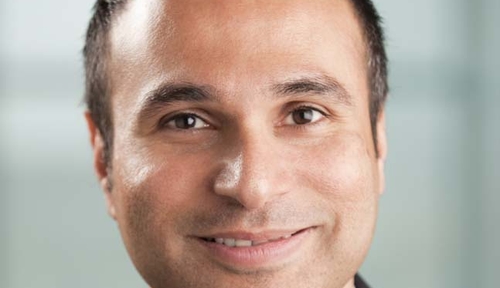The Department of Veterans Affairs Nebraska-Western Iowa Health Care System and the University of Nebraska Medical Center are taking part in the first definitive, large-scale clinical trial to investigate if a vitamin D supplement helps prevent or delay type 2 diabetes in adults who have prediabetes, who are at high risk for type 2.
Funded by the National Institutes of Health, the $40 million, 5-year study is taking place at about 20 study sites across the United States, including the Omaha VA Medical Center and UNMC.
The multiyear Vitamin D and Type 2 Diabetes (D2d) study will include about 2,500 people. Its goal is to learn if vitamin D – specifically D3 (cholecalciferol) – will prevent or delay type 2 diabetes in adults aged 30 or older with prediabetes. People with prediabetes have blood glucose levels that are higher than normal but not high enough to be called diabetes.
“This study is designed to look exclusively at the effects of vitamin D in preventing type 2 diabetes,” said Cyrus Desouza, M.D., principal investigator for the study at the Omaha VA Medical Center and UNMC. “Some smaller studies have indicated that Vitamin D might be effective in preventing blood glucose levels from getting worse. This trial will determine if there is any truth to this.”
“If this is true, it will show that giving people vitamin D is a very inexpensive way to prevent people from getting diabetes, by giving them a less-expensive vitamin that costs just cents a day compared to the thousands of dollars we spend on diabetes treatment drugs,” said DeSouza, who is an endocrinologist at the Omaha VA Medical Center and Chief of Endocrinology at UNMC..
D2d is the first study to directly examine if a daily dose of 4,000 International Units (IUs) of vitamin D – greater than a typical adult intake of 600-800 IUs a day, but within limits deemed appropriate for clinical research by the Institute of Medicine – helps keep people with prediabetes from getting type 2 diabetes. Based on observations from earlier studies, researchers speculate that vitamin D could reduce the diabetes risk by 25 percent. The study will also examine if sex, age or race affect the potential of vitamin D to reduce diabetes risk.
“An estimated 79 million Americans have prediabetes, and nearly 26 million more have diabetes,” said National Institute of Diabetes and Digestive and Kidney Diseases Director Griffin P. Rodgers, M.D.
The Omaha VA Medical Center and UNMC are recruiting volunteers to take part in D2d. Half of the participants will receive vitamin D. The other half will receive a placebo – a pill that has no drug effect. Participants will have check-ups for the study twice a year, and will receive regular health care through their own health care providers.
The study will be double-blinded, so neither participants nor the study’s clinical staff will know who is receiving vitamin D and who is receiving placebo. The study will continue until enough people have developed type 2 diabetes to be able to make a scientifically valid comparison between diabetes development in the two groups, likely about four years.
D2d builds on previous NIH-funded studies of methods to delay or prevent type 2 diabetes, including the Diabetes Prevention Program, which showed that, separately, lifestyle changes to lose a modest amount of weight and the drug metformin are both effective in slowing development of type 2 diabetes in people with prediabetes. However, additional safe and effective preventative strategies are needed to stem the increasing numbers of people developing type 2 diabetes.
“You always have to couple diet and exercise lifestyle changes with anything connected to diabetes,” Dr. DeSouza said. “Even if this is proven to be effective, diet and exercise are powerful weapons to preventing type II diabetes.”
DeSouza said Vitamin D generally does not present side effects.
D2d (ClinicalTrials.gov number NCT01942694) is supported under NIH grant U01DK098245. The NIDDK is the primary sponsor of the trial, with additional support from the NIH Office of Dietary Supplements and the American Diabetes Association. Support in the form of educational materials is provided by the National Diabetes Education Program.
To learn more about the study, including how to take part in D2d, at www.D2dstudy.org. To learn if you are eligible to participate through the Omaha VA Medical Center and UNMC, call Penny Anzures at 402-995-3924 or e-mail penny.anzures@va.gov.
The VA Nebraska-Western Iowa Health Care System’s mission is to honor America’s Veterans by providing exceptional health care that improves their health and well-being. VA NWIHCS employees serve more than 161,000 Veterans in Nebraska, western Iowa and portions of Kansas and Missouri. The system includes a tertiary medical center in Omaha and a Community Living Center in Grand Island, Neb. Community-based outpatient clinics are located in Lincoln, Grand Island, North Platte, Norfolk, and Bellevue, Neb., and Shenandoah, Iowa; and a contract outreach clinic in O’Neill, Neb. For more information, visit http://www.nebraska.va.gov
Through world-class research and patient care, UNMC generates breakthroughs that make life better for people throughout Nebraska and beyond. Its education programs train more health professionals than any other institution in the state. Learn more at unmc.edu.
